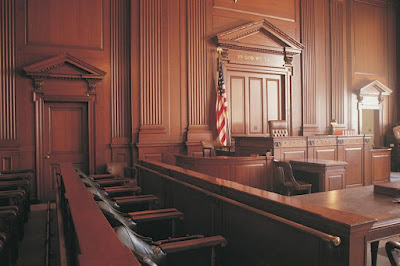Pope Francis has taken a consistently principled position that human life is sacred.
I was among the Sri Lankans who were shocked to see media reports in July indicating that President Maithripala Sirisena and his cabinet have given the green light to execute drug offenders on death row.
Pope Francis has [for years] taken a consistently principled position that human life is sacred. Through civil wars and insurrections, Sri Lanka was one of 29 countries that had maintained a moratorium on the death penalty. Another 106 countries had abolished it fully by 2017, a year when 23 countries were known to have carried out executions.
If some detainees are engaged in drug-related offences from within prison grounds, cited as a reason to rein in the death penalty, security in prisons must be strengthened. This includes using new technology and holding prison officials accountable.
There is no evidence in Sri Lanka, or in other countries, that the death penalty has reduced crime by having a deterrent effect.
In Sri Lanka, there are serious deficiencies in the criminal justice system, including a lack of easily accessible, quality, legal aid.
The death penalty is an irreversible form of punishment which grants no space to consider new evidence that may emerge after a conviction is made, for example through new technology, indicating a wrongful conviction.
It has been pointed out that in countries such as America, Canada and the UK, people wrongly convicted have been released from death row decades after they were put there as new evidence has shown they were wrongfully imprisoned.
Meanwhile, the Colombo-based European Ambassadors have written to the Sri Lankan president stressing their unequivocal opposition to capital punishment in all circumstances and all cases.
A European Union (EU) diplomat was also quoted as telling the media "if Sri Lanka resumes capital punishment, Colombo will immediately lose its GSP-Plus status."
Pope Francis has been forthright and taken a consistently principled position that human life is sacred and the death penalty is "an inhuman measure that humiliates human dignity, in whatever form it is carried out."
He further described it as being "contrary to the Gospel."
However, Cardinal Malcolm Ranjith, the Catholic Archbishop of Colombo, clarified in statement issued around July 20 that he supports the president's move to implement the death penalty in certain cases. He said perpetrators of gruesome crimes could be considered as having forfeited their own right to life, and whatever punishment was given by courts should be implemented.
The president has called to lift the 42-year moratorium on the death penalty for some death row convicts.
Less than two weeks after Cardinal Ranjith's statement, the Vatican's Congregation for the Doctrine of the Faith (CDF) issued a letter to bishops on Aug. 1 announcing that a revision of Church teachings had been approved by Pope Francis. The revision stated categorically that the death penalty is inadmissible and unnecessary even when used to protect the life of innocent people.
The Catholic Bishops Conference of Sri Lanka followed this up with a statement of their own on Aug. 9 that quoted extensively from the CDF's letter and made it clear in no uncertain terms that they unequivocally oppose the death penalty.
Now is the time for Sri Lankan Catholics, including the Catholic Bishops Conference, the Conference of (Catholic) Major Religious Superiors, and lay groups to follow the pope's call for churches to work toward the total abolition of the death penalty in all circumstances.
Together, we must call on the country to ratify the 2nd Optional Protocol to the International Covenant on Civil and Political Rights that calls for the abolition of the death penalty. Some 85 countries had ratified it by the end of 2017.
Source: heraldmalaysia.com, Ruki Fernando, August 21, 2018 The author is a Sri Lankan human rights activist who was detained under the Prevention of Terrorism Act. He is still under investigation. He is also a member of the Justice, Peace and Integrity of Creation Commission of the Conference of Major Religious Superiors and an adviser to the INFORM Human Rights Documentation Centre.
⚑ | Report an error, an omission, a typo; suggest a story or a new angle to an existing story; submit a piece, a comment; recommend a resource; contact the webmaster, contact us:
deathpenaltynews@gmail.com.
Opposed to Capital Punishment? Help us keep this blog up and running! DONATE!
"One is absolutely sickened, not by the crimes that the wicked have committed,
but by the punishments that the good have inflicted." -- Oscar Wilde




.jpg)







